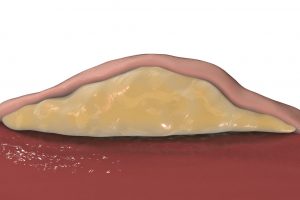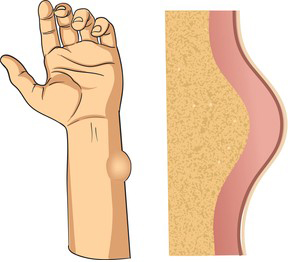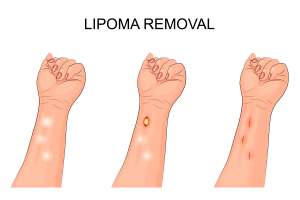A lipoma is a fatty tumor located just below the skin. It isn’t cancer and is usually harmless. A lipoma is a slow-growing, fatty lump that’s most often situated between your skin and the underlying muscle layer. A lipoma, which feels doughy and usually isn’t tender, moves readily with slight finger pressure.


Causes and Risk Factors of Lipoma:
Here are some possible risk factors:
- Lack of Exercise As with many things, being physically active may protect you. Some doctors believe that lipomas occur more often in inactive people. (1)
- Genetics Lipomas often run in families, so genes may play a role.
- Age Though lipomas can develop in anyone, they are most likely to appear in middle-aged adults between ages 40 and 60.
- Certain Medical Conditions A person may develop one or more lipomas if they have Gardner syndrome (an inherited condition that causes benign and malignant tumors to form), adiposis dolorosa, familial multiple lipomatosis, or Madelung disease (seen mostly in men who are heavy drinkers).
Treatment and Medication Options for Lipoma:
A lipoma doesn’t usually need to be treated unless it bothers you. Nevertheless, your doctor will recommend scheduling periodic checkups to make sure that the tumor isn’t growing or changing in any way. If the lipoma is bothering you, is uncomfortable, or is growing, your doctor may suggest having the lipoma removed. The only treatment that will completely remove the lipoma is surgery. If you do choose to have the lipoma removed, it makes sense to do it while it is still small, since the larger it gets, the more complicated it is to remove. (4) A local anesthetic is typically used to numb the area before surgery, though larger lipomas may call for general anesthesia.


When should I see my healthcare provider about lipomas?
If you have skin growth, lump, or knot under your skin, see your provider. It’s essential to get evaluated and rule out serious conditions, such as liposarcoma (a type of cancer). Symptoms of liposarcoma are similar to signs of lipoma.
If you have a lipoma, see your provider if you notice any changes, such as sudden pain. Call your provider if it’s growing rapidly (over weeks), feels hard, or doesn’t move as easily when you touch it. Your provider will check the lipoma to see if it has blood vessels, which is a sign of a rare type of painful lipoma called an angiolipoma.
Can I prevent lipomas?
Lipomas (and many of the conditions that cause lipomas) are inherited. Since they’re passed down through families, it isn’t possible to prevent them. You can lower your risk of developing Madelung’s disease (a condition that causes lipomas to grow) by limiting the amount of alcohol you drink.











